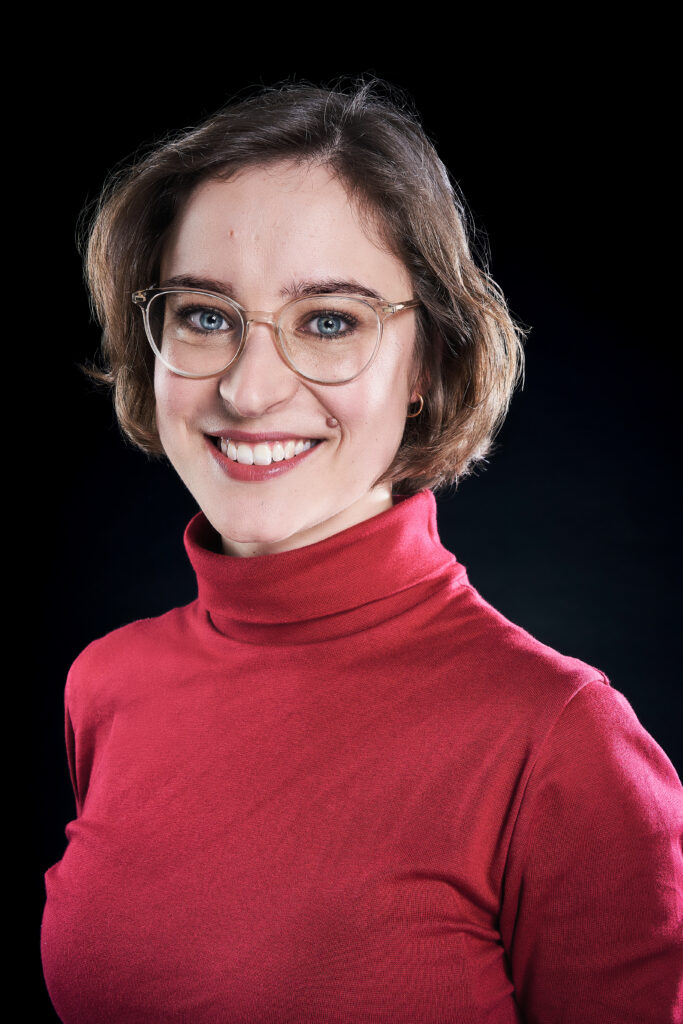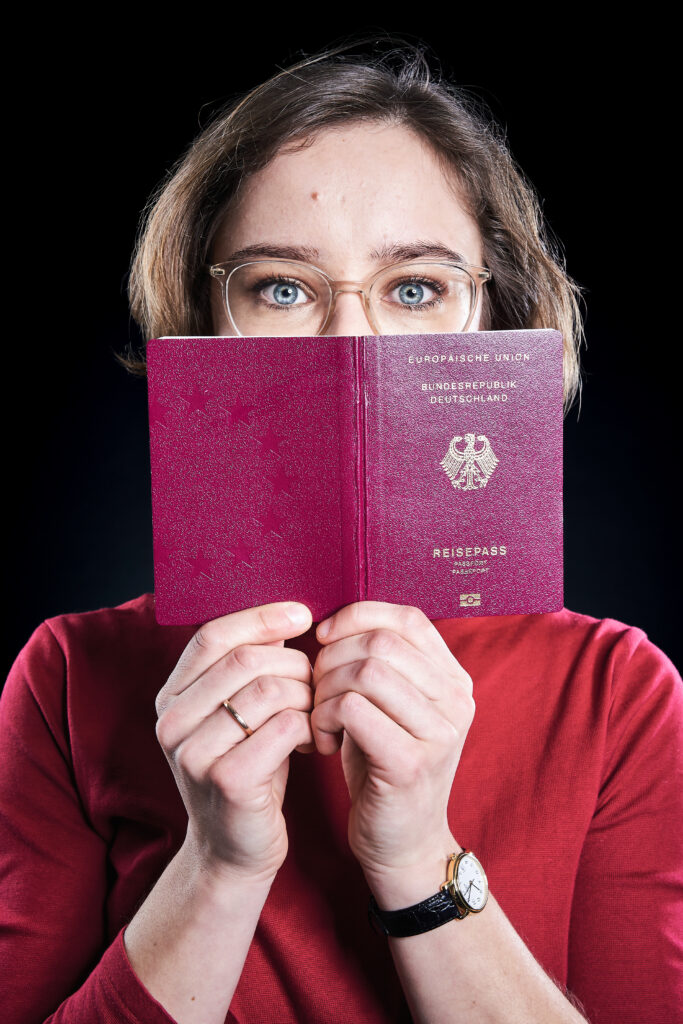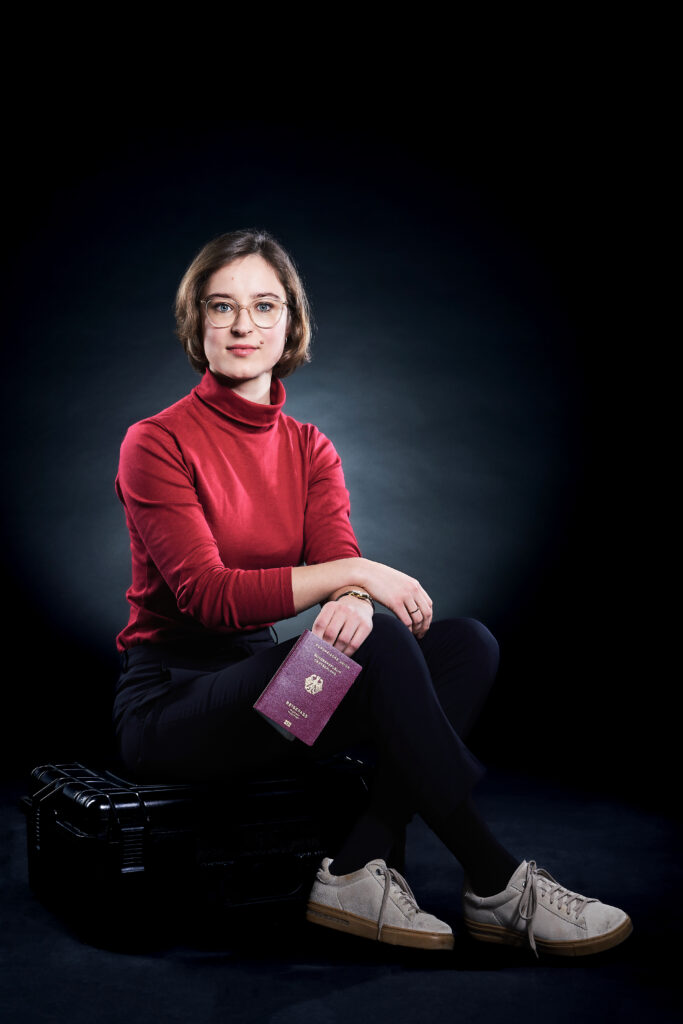Between field research and everyday academic life – a portrait of Dr. Julia Gurol-Haller

Qatar, spring of 2023. The emirate that – until last December – attracted such great, far-reaching attention: The Men’s World Cup in the Persian Gulf cast long shadows on a country without a soccer culture, a tiny country trying to use its vast treasures and growing influence as a bargaining chip in the world. What has remained of the supposed changes? Political scientist Dr. Julia Gurol-Haller will get to the bottom of this and also think about those with whom she may not be able to come into contact at all: Women, the marginalized and voiceless, drive her research at the University of Freiburg. She is not satisfied with what she has achieved and embodies tangible work for equality for all academics. Her research focuses on authoritarianism, infrastructure and connectivity with a regional focus on China and the Arab Gulf region. In doing so, she repeatedly recognizes colonial continuities, epistemic violence and asymmetry in knowledge production – problem areas that she is very familiar with from her own research experience.
Gurol-Haller already has a considerable research history and was appointed to the elite circle of the Young Academy of the Leopoldina for five years last summer; a knightly accolade for her, proof of her extraordinary achievements in her field. „We can also change the social conditions and structures of the scientific system,“ she says. This is evident in her actions and demeanor. Taking action against structural injustices in all areas of university life is important to her: in her teaching, she focuses on incorporating research experience from the field in authoritarian, patriarchal contexts in China or the Middle East in such a way that her students grow into reflective researchers themselves. „When I read term papers and essays,“ says Gurol-Haller, „and predominantly white, European or American authors are quoted, it shows me that we still have a long way to go before we have an inclusive, global knowledge system.“ – Pointing out such, often subtle, underrepresentation and systemic discrimination against academic women* or researchers from the so-called Global South is a key concern for her.
In reflecting on her own position and her goals in research and teaching, she has also grown as a person. For her, the debate about gender-sensitive language is a focus on social and societal tensions, because experiencing discrimination as a woman happens time and again. An academic career like Gurol-Haller’s is one example of how non-male talents can make their way in science against all systemic obstacles. Against or precisely because of all systemic obstacles? „Personally, I have also drawn motivation from campaigning for more equal opportunities in the science system,“ she says. This also requires the commitment and support of feminist men. After all, she has not always encountered men in her career or in research who were interested in equality. Some established scientists still do not take their aspiring female colleagues seriously. In doing so, they not only harm themselves, but the scientific community as a whole.
Julia Gurol-Haller knows this well from both her academic work and her field research: her first research trip to Lebanon confronted her with the harsh reality of openly patriarchal societies. When she talks about it, you can sense enthusiasm in the room, an unconditional motivation to conduct research as a woman there too, to reshuffle social spaces and depict a completely different view of these realities. For her, all of this is in the context of global asymmetries in knowledge production.
She also brings her wealth of experience to her teaching. In her seminars, Gurol always shows how resolving oppression, marginalization and inequalities is the task of those who do not directly suffer from them. „Unequally and one-sidedly produced knowledge is not able to adequately depict and research social problems and developments – today as in the past“. Julia Gurol-Haller’s ongoing commitment is to breaking down these structures. This becomes clear when she talks about the experiences of her fellow academics and other women who have had to overcome the same obstacles. „Our students are often very aware of discrimination. That’s a positive development,“ she says. Giving them the opportunities that everyone should have is one of her central concerns, so that in a few years‘ time, women, mothers, trans* and non-binary people will naturally find a place alongside men in academia and demand it as a matter of course. When she brings back a piece of this mosaic from Qatar in the near future, she will have gained new experiences from which students in Freiburg can benefit.


Portrait by Jona Ebert
Jona Ebert is studying Political Science and Cultural Anthropology in his 3rd semester. After growing up near Stuttgart, he moved to Freiburg in the fall of 2021. Writing about politics and thinking about how to do it well is what interests him in and around his studies. He can well imagine a career in journalism at the moment.